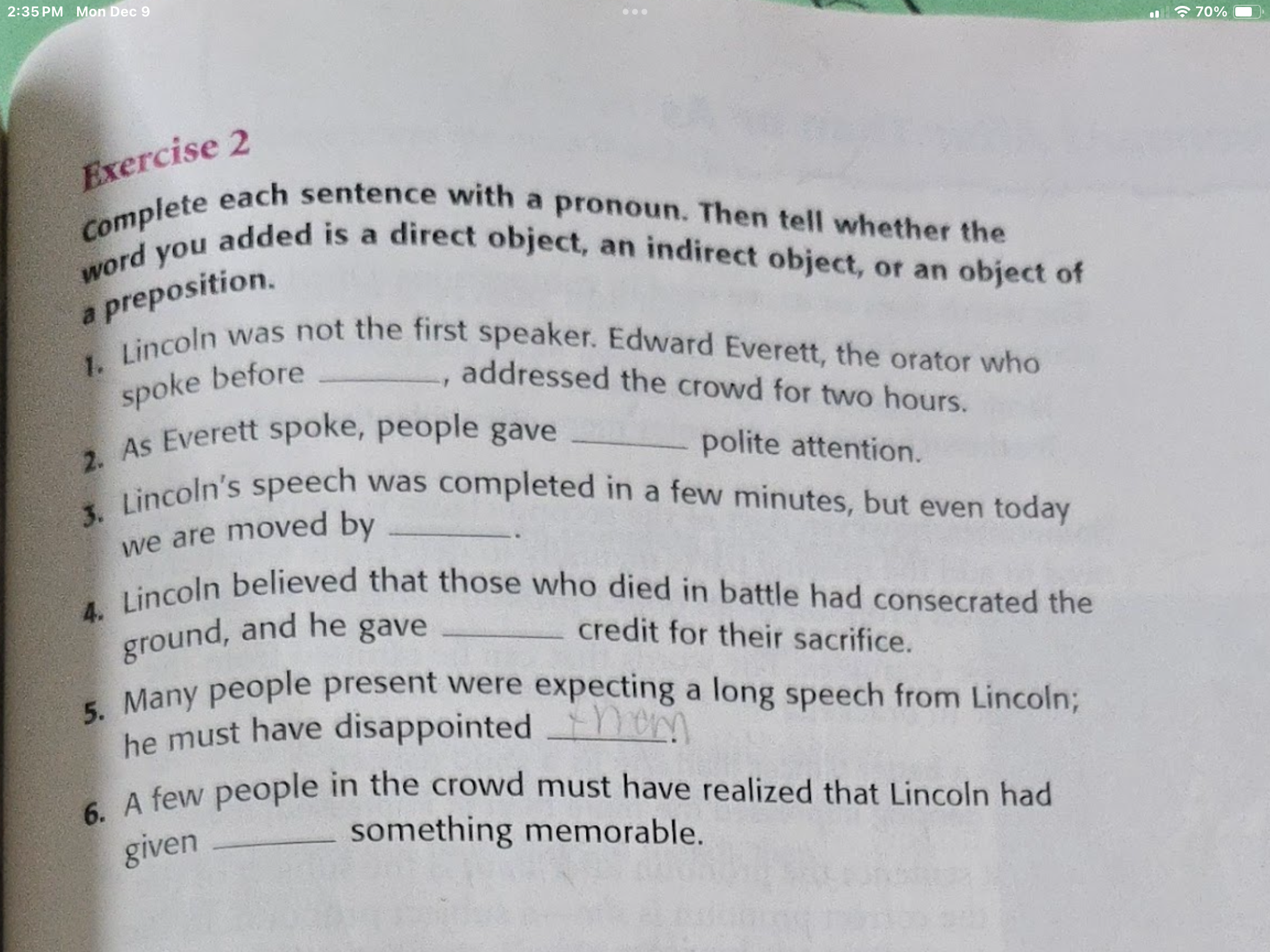Complete each sentence with a pronoun. Then tell whether the word you added is a direct object, an indirect object, or an object of a preposition.

Understand the Problem
The question is asking to complete sentences with appropriate pronouns and identify their grammatical roles. Each sentence requires a pronoun that functions as a direct object, an indirect object, or an object of a preposition.
Answer
["1. him (Object of preposition)","2. him (Indirect object)","3. it (Object of preposition)","4. them (Indirect object)","5. them (Direct object)","6. them (Indirect object)"]
["1. Lincoln was not the first speaker. Edward Everett, the orator who spoke before 'him', addressed the crowd for two hours. (Object of preposition)","2. As Everett spoke, people gave 'him' polite attention. (Indirect object)","3. Lincoln\u2019s speech was completed in a few minutes, but even today we are moved by 'it'. (Object of preposition)","4. Lincoln believed that those who died in battle had consecrated the ground, and he gave 'them' credit for their sacrifice. (Indirect object)","5. Many people present were expecting a long speech from Lincoln; he must have disappointed 'them'. (Direct object)","6. A few people in the crowd must have realized that Lincoln had given 'them' something memorable. (Indirect object)"]
Answer for screen readers
["1. Lincoln was not the first speaker. Edward Everett, the orator who spoke before 'him', addressed the crowd for two hours. (Object of preposition)","2. As Everett spoke, people gave 'him' polite attention. (Indirect object)","3. Lincoln\u2019s speech was completed in a few minutes, but even today we are moved by 'it'. (Object of preposition)","4. Lincoln believed that those who died in battle had consecrated the ground, and he gave 'them' credit for their sacrifice. (Indirect object)","5. Many people present were expecting a long speech from Lincoln; he must have disappointed 'them'. (Direct object)","6. A few people in the crowd must have realized that Lincoln had given 'them' something memorable. (Indirect object)"]
More Information
Determining the correct pronoun and its grammatical function helps in understanding the structure of the sentence.
Tips
A common mistake is confusing indirect objects with direct objects. Remember, a direct object receives the action, while an indirect object is often the beneficiary of the action.
AI-generated content may contain errors. Please verify critical information